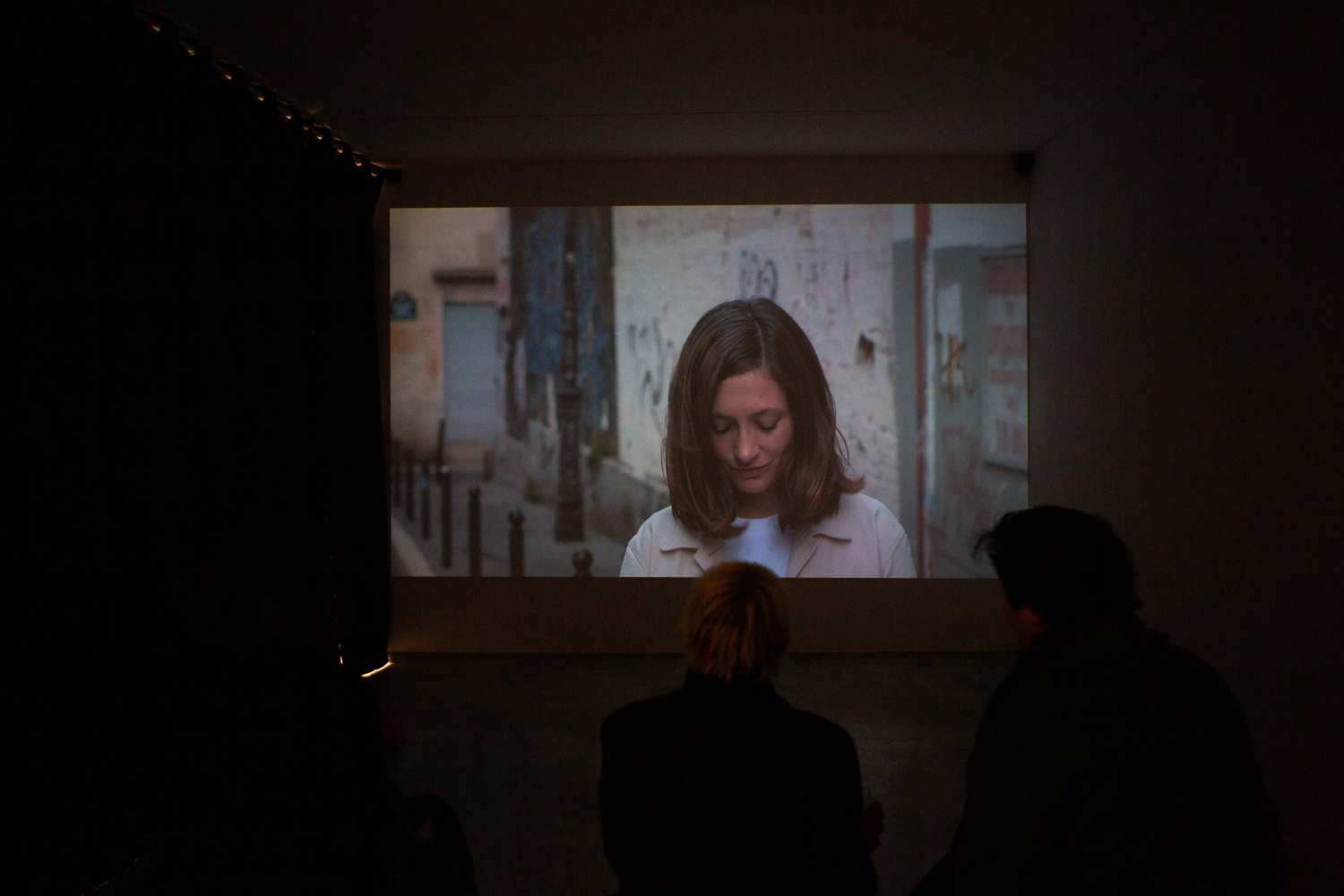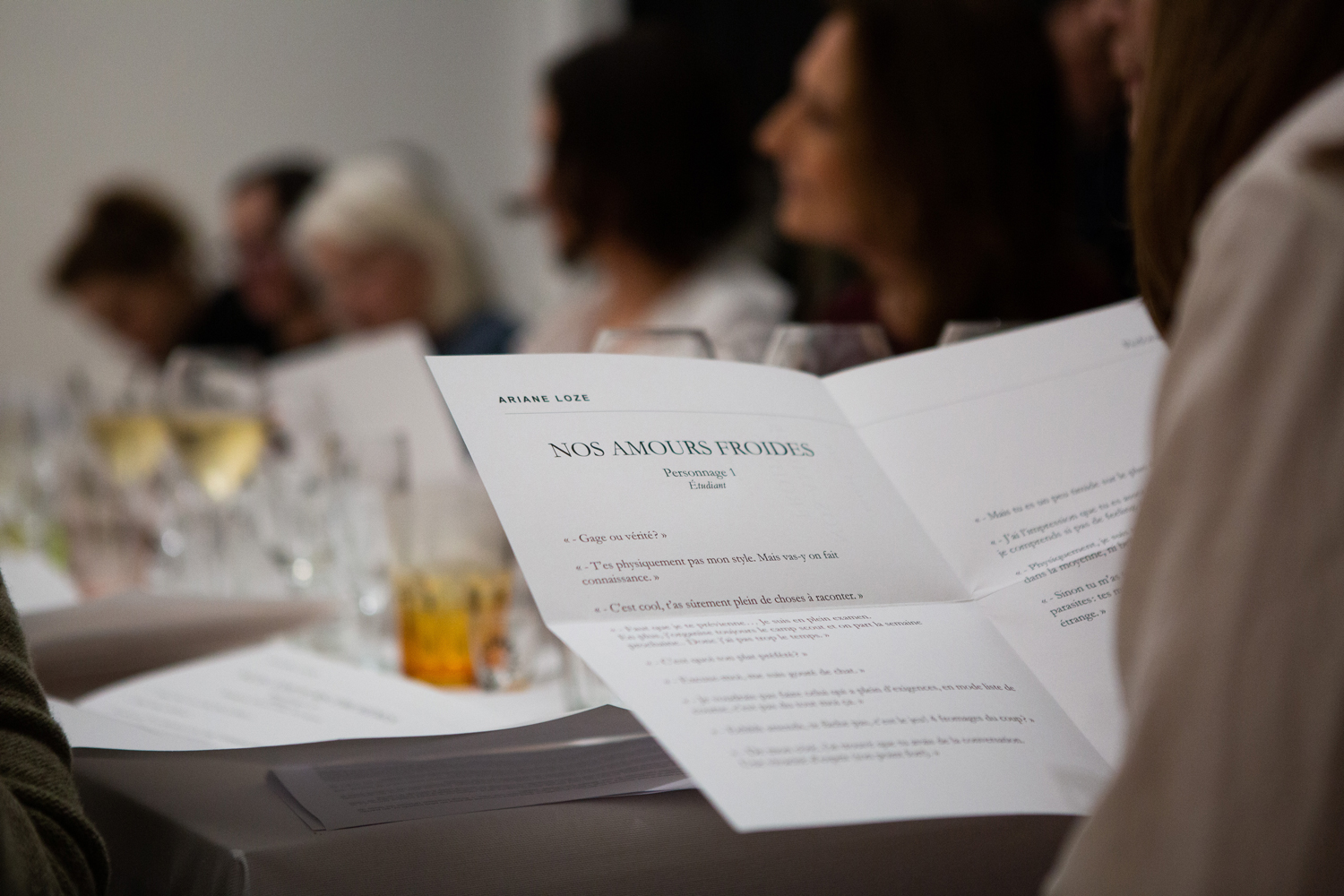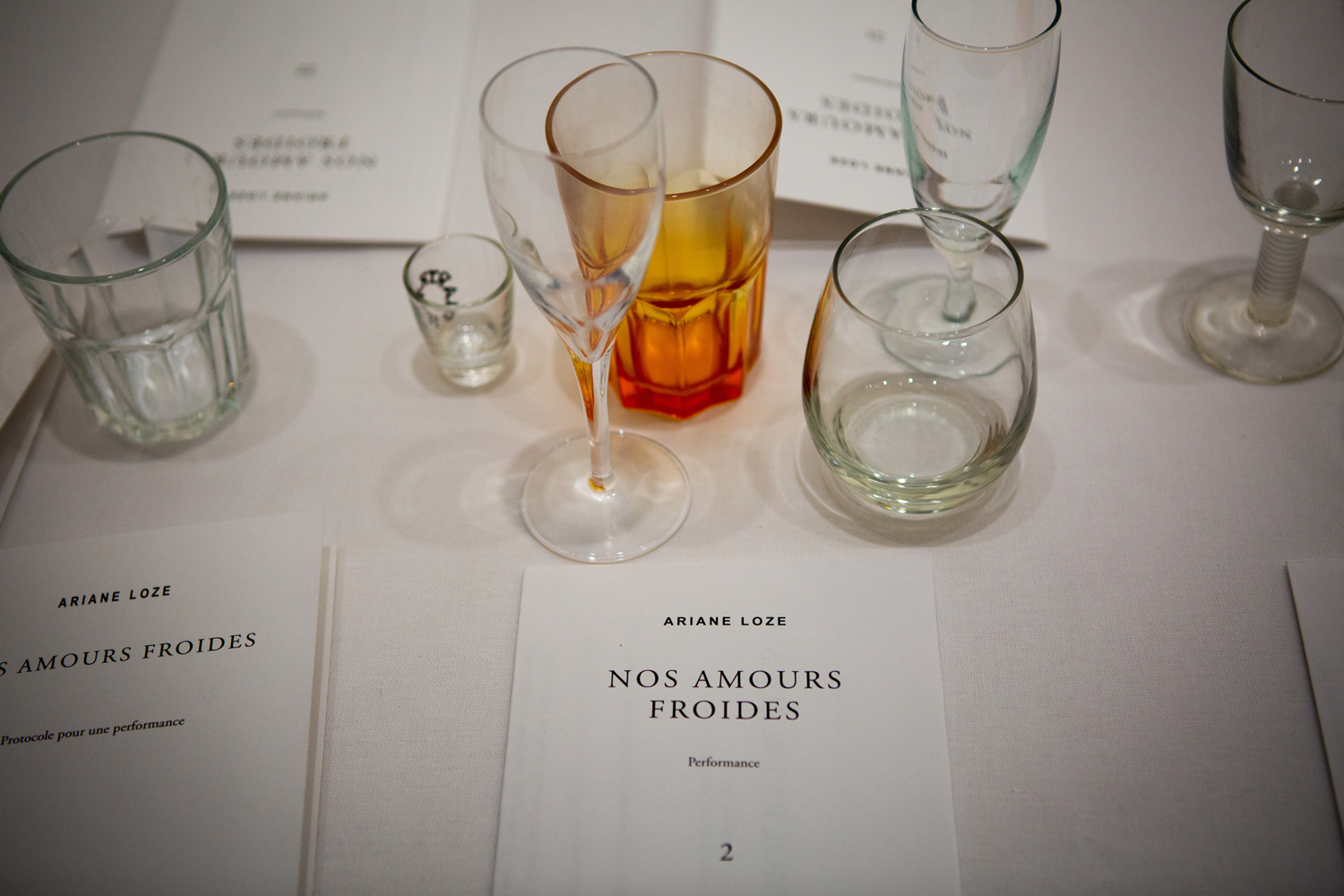Nos amours froides
Ariane Loze
March 25th - May 6th, 2023
Michel Rein, Paris
Installation views



About
We’re walking down a street that’s under construction. With each step we take new shop windows appear too. On sale, behind the window, are the objects of our desire, objects that we didn’t even suspect we wanted yet. Welcome to algocracy!
The debate over algorithms and the use of personal data by web companies is more heated than ever before. Algorithms are the computational processes that govern how modern software reads, sorts and displays responses to our requests. To work well, algorithms need data. Our data.
The pages we ‘follow’, our digital ‘friends’, our economic means, the events we attend, the recurring hashtags and the music we listen to are used to classify us into categories. While there are eight billion of us on Earth, there are only about 100 social categories for the big algorithms.
The algorithms and those that control them, i.e. the big digital companies, are then able to know everything about us. The platforms’ objectives are different from those of their users. Hiding behind their humanist mission, to connect people and facilitate exchanges, lies terminals that collects, analyses and resells our data to advertisers. They know what we want, decide what we read, influence what we eat, where we travel and even how we vote. In other words, we would not be masters of our choices?
Ariane Loze, who was born in Belgium in 1988, and now lives and works in Brussels and Paris, is presenting two new film creations as well as a performance for her new exhibition that is being held simultaneously in Michel Rein Paris and Brussels.
Through her two films, If you didn’t choose A, you will probably choose B, 2022 and Our Cold Loves, 2022, the artist, who is fascinated by algorithmic governance, brings us into a meta-city where time is suspended, raising questions about human behavior at the dawn of a new evolutionary age for society.
In a digital Far West, Loze – at once sociologist, researcher, actor, director and screenwriter – takes as her subject our new way of experiencing relationships and excavates the present by describing the interactions between man and machine with irony and insight.
Loze pulls us into a slice of time, where the backdrop of a deserted Paris becomes a theatrical palimpsest in which a multitude of characters take the stage, all played by the artist herself. Coming up with an innovative language, the artist gives human form to algorithms and performs an emotional X-ray on contemporary life. Her fiction (world?) is therefore understood as a critical tool offering an escape from algorithms, a human creation that begins to take on a life of its own.
Whether predictions of human behaviour, attractive discount offers, promises of professional success or commitments to find a soulmate, Loze personifies and lends her voice to these algorithms, which, through their constant digital monitoring of human beings, become the omniscient narrators of our lives, even anticipating our desires.
Parading through the artist’s films are a kaleidoscope of archetypal people who neither interact with one another and try to cover up their vulnerabilities. While they hide, Ariane Loze tends to dig into these characters in order to bring out their sensitivity, so that the viewer develops empathy for these figures. There are no communities here, no gatherings – instead, we find characters who do not communicate, even with themselves, negating the human principles of community and exchange.
‘Ariane Loze is hardly exaggerating, ridiculing a system of which we are more and more captive and which we are partly complacent about, in which the supposedly virtual has a very tangible impact on our lives’ (Anne Dressen, excerpt from the text presenting the exhibition Les Portes du Jour, Carnavalet museum, 2022*).
Through the use of high demand figures, Loze immerses us in this culture of speed where linear time takes precedence over circular time, and where everything rushes to reach a point that doesn’t exist. The characters are prisoners of this speed and completely out of kilter with the time frames associated with the human experience or, even more so, with those of the natural world.
The artist’s narration injects emotion into the sterile nature of digital mechanisms. In both films, the technological devices have disappeared, and so too have the notifications, the messages, the illuminated signals, the bright colours and the banners. Only the sounds remain, superimposed over the voice of the artist who bewitches us.
The open and emotionally charged finale of Our Cold Loves becomes the overture for the transposition of the video into a performance.
A large, elegantly laid table welcomes visitors, who are soon to become performers.
Once activated, the scenario comes to life, and the twelve characters of the video will be played by the same number of spectators drawn from the audience. Loze intends her performances to be a participatory experience.
Each performer chooses the character that they’ll play, and the handful of lines they’ll speak. Loze, who previously acted all the roles on and off stage herself, lets go of her work by placing it in the hands of these spectator-actors. The artist eliminates the digital space and deconstructs the dramatic structure of the cinematographic work by inviting the participants in the performance to create an infinite number of scenarios: a work in reverse aimed at exploring the creativity of the performers and investigating the tangible space of sociability.
Through her work, Loze attempts to uncover the mechanism and the wizardry of digital communication, inviting us to move from character to person, from the fact of being a form narrated behind a screen, to that of having a form.
The show’s protagonists thus break down the wall of the screen, where communication is based on the transmission of messages that are different from the social interactions which take place in the physical world. All of this leads to the experience of relationships that are compromised from the outset and a loneliness to which there is no solution.
The characters who take part in Loze’s performance appear living and real to the audience. The artist doesn’t give them a definitive form. On the contrary, she grants them maximum freedom of expression and movement about the stage. The several replicas makes room for the spectator-actor’s identity.
And perhaps we might consider whether the artist’s performance – a burst of metafiction – is not simply the prelude to her next video?
Caterina Zevola
March 2023
The preliminary research for the works were made possible by conversing with Jessica Pidoux, sociologist and Paul-Olivier Dehaye, mathematician
*Ariane Loze won the 1% Art Market Prize of the city of Paris

